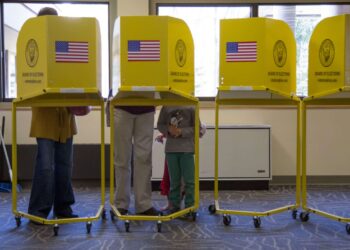With tax season underway approaches, Americans may encounter a prompt to contribute to the Presidential Election Campaign Fund. Here’s a breakdown of what this specific fund is and the implications for taxpayers.
What is the Presidential Election Campaign Fund?
Established in 1976, the Presidential Election Campaign Fund (PECF) is a federal program designed to provide public financing for presidential candidates and their campaigns. The fund is financed by taxpayers who voluntarily choose to allocate a portion of their tax payments to support presidential candidates.
How Does It Work?
Taxpayers have the option to allocate $3 of their federal income tax payment (or $6 for married couples filing jointly) to the Presidential Election Campaign Fund. This allocation does not increase the taxpayer’s overall tax liability or reduce their refund. Instead, it redirects a small portion of their taxes to support the PECF.
Why Contribute?
Contributions to the PECF are vital for funding presidential campaigns and reducing candidates’ dependence on private donors, particularly large corporations and special interest groups. By providing public financing, the PECF aims to promote fairness and transparency in the electoral process.
Implications for Tax Filings
When filing taxes, individuals are presented with the option to allocate a portion of their tax payment to the PECF. This decision does not affect their tax liability or refund. instead, it simply directs a small portion of their taxes to support the operation of presidential campaigns.
As taxpayers prepare to file their taxes, they have the opportunity to support presidential campaigns by allocating a portion of their tax payment to the Presidential Election Campaign Fund. This voluntary contribution plays a crucial role in funding presidential campaigns and promoting transparency in the electoral process.
This content is brought to you by the FingerLakes1.com Team. Support our mission by visiting www.patreon.com/fl1 or…
Read the full article here








